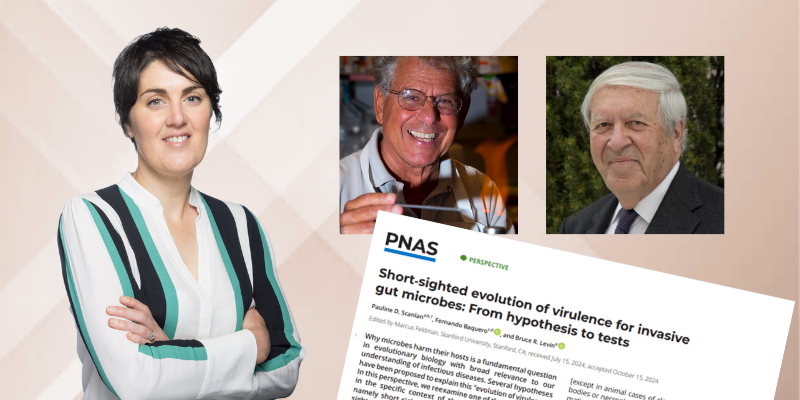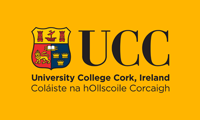News
APC research offers fresh insights on why microbes harm their hosts

A recent perspective published in the prestigious journal PNAS takes a new look at why some microbes evolve to harm their human hosts.
The research revisits an idea first introduced in the 1990s and provides valuable updates for doctors and scientists working on the human gut microbiome and infectious disease.
The study, led by Dr. Pauline Scanlan of APC Microbiome Ireland, a Research Ireland centre at University College Cork, along with Professors Fernando Baquero from Madrid and Bruce Levin from Atlanta, explores the idea of "short-sighted evolution." This theory suggests that some microbes harm their hosts as an unintended consequence of their own evolution. Within-host evolution of these microbes may result in what is called niche expansion, such that microbes expand into areas of the body they don’t normally inhabit, causing illness or even death. However, by doing so, they often cut off their ability to spread to new hosts, leading to what researchers call an "evolutionary dead end."
The research highlights examples of gut microbes, such as certain strains of E. coli that are implicated in conditions like Crohn’s Disease and others which can cause urinary tract infections and sepsis. The scientists propose that these microbes evolve within the body in a manner that is consistent with the short-sighted evolution theory and provide observational examples to support this idea.
Dr. Scanlan explains that understanding why microbes harm their hosts is a key question in evolutionary biology. This perspective also has broad relevance to understanding how we might better understand the nature of infectious disease, as well as its prevention and treatment. “On a personal note, working with Professors Baquero and Levin, both who have been research active since the 1970s, and are pioneers in the field, was an incredible privilege and rewarding experience,” she added.
The team’s paper discusses how future research could test their ideas using advanced genetic data and animal studies. They also outline how such experiments might reveal mutations and genetic traits that make microbes more harmful, providing new insights for scientists studying the genetic basis of virulence and infectious diseases.
Dr Scanlan was keen to emphasise how the current conceptual and experimental framework in microbiome research takes a largely static view of microbial functionality. Her hope is that the hypothesis presented in this paper will highlight the importance of rapid within-host evolution to microbiome research, and in doing so will help change how scientists and clinicians think about and study the functionality of different species of microbes that can inhabit the guts of humans, and also non-human hosts.
‘Short-sighted evolution of virulence for invasive gut microbes: From hypothesis to tests’ is published in PNAS and available to read here.
Dr Pauline Scanlan is a Royal Society- Research Ireland University Research Fellow based at APC Microbiome Ireland and Departmental Lecturer, School of Microbiology, University College Cork.


